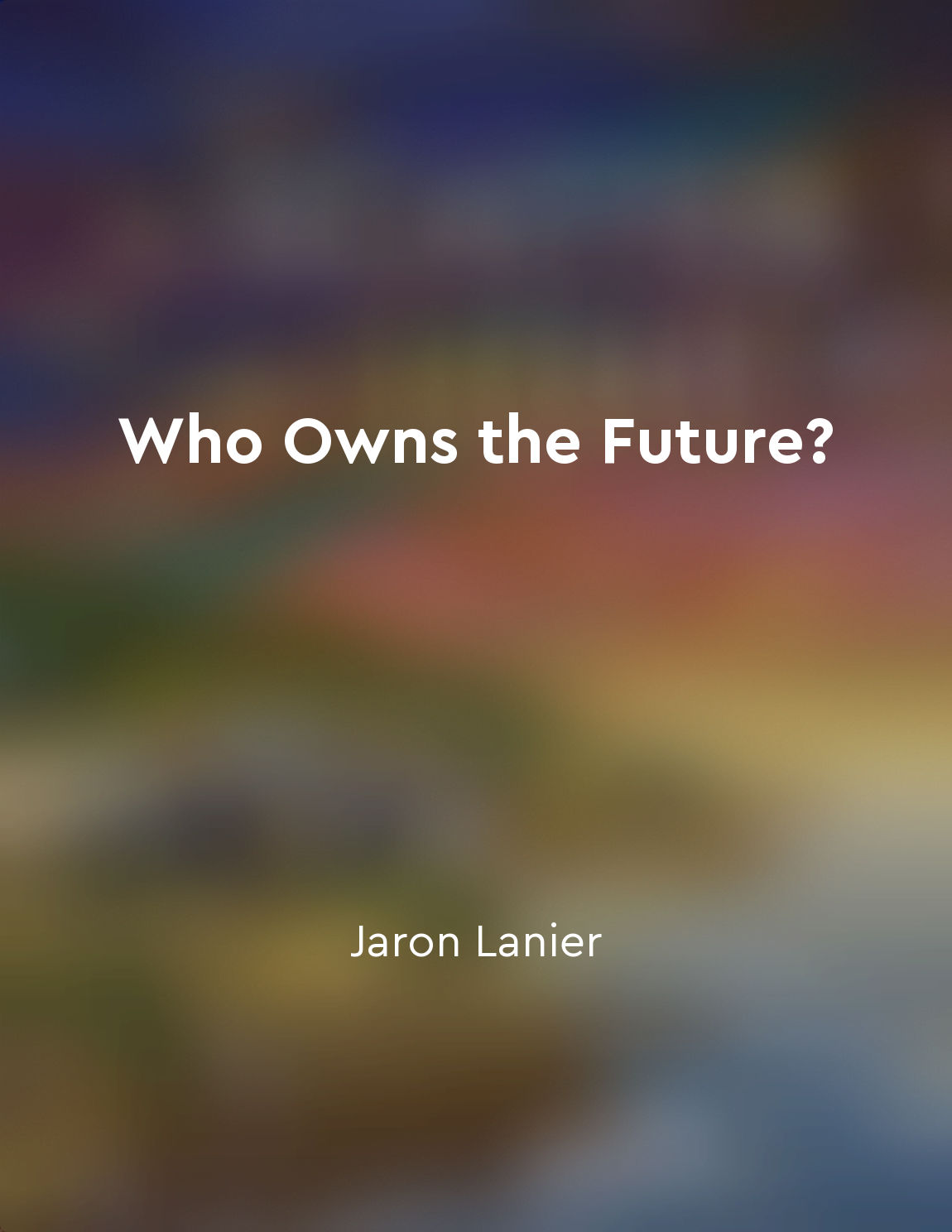The value of information should be recognized and compensated from "summary" of Who Owns the Future? by Jaron Lanier
In the digital age, information has become the most valuable commodity. Every click, like, share, and comment generates data that can be analyzed and monetized by big tech companies. However, the individuals who generate this valuable information rarely see any compensation for it. This is a fundamental injustice that needs to be addressed. When we contribute our data to social media platforms, search engines, and other online services, we are essentially working for free. Our information is used to train algorithms, target advertisements, and improve products and services, all of which generate enormous profits for the companies that control the data. Yet, we are not given a fair share of the value that we create. In a fair system, individuals would be compensated for the data they generate. Just as physical labor is compensated with wages, so too should the labor of producing valuable information be rewarded. This would not only be more equitable, but it would also help to redistribute wealth and power in society. By recognizing and compensating the value of information, we can create a more just and sustainable economy. Individuals would have more control over their data and how it is used, leading to greater privacy and security online. Moreover, by incentivizing the production of high-quality information, we can ensure that the digital economy continues to grow and innovate.- The value of information should be seen as a collective resource that benefits society as a whole. By acknowledging this value and compensating individuals for their contributions, we can create a more ethical and inclusive digital economy. It is time to rethink our relationship with information and ensure that those who create it are fairly rewarded.


